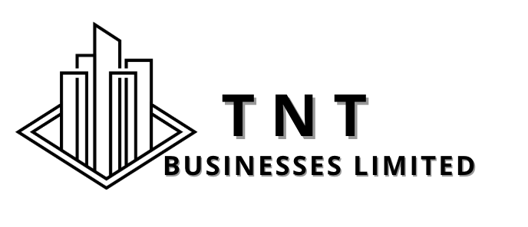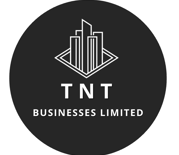Why Real Estate is a Smart Investment in Cameroon


Introduction to Real Estate Investment in Cameroon
The real estate market in Cameroon presents a unique opportunity for investment, driven by a combination of economic growth, urbanization, and a burgeoning population. In recent years, Cameroon has seen an increase in its Gross Domestic Product (GDP) and an overall improvement in economic stability, which has laid a solid foundation for the real estate sector. This economic landscape is becoming ever more attractive to both local and international investors seeking viable markets for investment.
The growth potential of real estate in Cameroon is significant. As of now, there is an ongoing shift towards urbanization, with many people moving from rural areas to urban centers in search of better opportunities. This demographic movement is resulting in a rising demand for housing and commercial properties. Cities like Douala and Yaoundé are experiencing rapid development, leading to new infrastructural projects that enhance their appeal as investment destinations. The local government has also initiated policies aimed at promoting real estate development, thus facilitating greater access to property investment opportunities.
Moreover, the increasing population growth further fuels the demand for various types of real estate, including residential, commercial, and mixed-use properties. This trend indicates a sustained need for housing, office space, and retail outlets, driving prices upward and ensuring that investments in real estate can yield substantial returns. Investors can benefit from developing properties, converting existing structures, or simply acquiring land in strategically located areas to meet this expanding demand.
In light of these dynamics, investing in the real estate market in Cameroon not only aligns with economic trends but also offers a diversified approach to building wealth. As the country continues to evolve, the prospects for real estate investment remain bright, making it a strategic choice for those looking to invest in a growing economy.
Benefits of Investing in Real Estate
Investing in real estate in Cameroon presents numerous advantages that contribute positively to financial security and wealth accumulation. One of the primary benefits of real estate investment is its potential for long-term wealth growth. The appreciation of property values over time allows investors to build substantial equity. In regions like Cameroon, where urbanization is on the rise, properties are witnessing an increase in demand, resulting in greater investment returns and overall market vitality.
Stability in rental income is another significant benefit associated with real estate investments. By acquiring rental properties, investors can generate consistent cash flow. This income can serve as a reliable source of funds to cover mortgage payments, property maintenance, and other expenses. Given the increasing population in urban areas, demand for rental properties often remains high, making real estate a secure investment option in Cameroon’s dynamic market.
Additionally, real estate investments come with various tax advantages. Investors can often deduct expenses related to property management and maintenance, which can help reduce their overall taxable income. Furthermore, the depreciation of property value for tax purposes can also lead to crucial savings, enhancing the financial aspects of property ownership in Cameroon.
Moreover, investing in real estate offers the opportunity for property appreciation, which refers to the increase in property value due to factors such as infrastructure development and economic growth. In Cameroon, ongoing improvements in transportation and utilities directly influence property values, meaning that investments made today can yield significant returns in the future.
In conclusion, the multifaceted benefits of investing in real estate – from wealth accumulation and stability to tax advantages and appreciation potential – make it an attractive investment option for individuals looking to secure their financial future in Cameroon.
Understanding the Cameroonian Real Estate Market
The real estate market in Cameroon has shown remarkable potential in recent years, making it a focal point for both local and international investors. Various factors contribute to the uniqueness of this market, including demographic trends, economic stability, and geographical diversity. As the population continues to grow, especially in urban areas, there is a heightened demand for housing and commercial properties, which presents ample investment prospects.
In terms of market trends, property prices in Cameroon can vary significantly based on the region. Major cities such as Douala and Yaoundé have experienced a steady increase in property values due to their economic activities and infrastructural developments. The average price of residential properties ranges widely, allowing potential investors to find options that align with their budget. In Douala, for instance, a typical three-bedroom apartment can cost anywhere from 30 million to 80 million CFA, while in Yaoundé, the prices may be slightly lower but still promising.
Moreover, the diversity of property types available in the market enhances investment opportunities. Investors can explore residential properties, commercial spaces, and even land for development. The establishment of new industrial zones and commercial hubs has further driven the demand for both residential and commercial properties. Additionally, regions such as Buea and Limbe present emerging opportunities, particularly for those looking to invest in vacation rentals or hospitality ventures, given their scenic views and tourism potential.
The Cameroonian real estate landscape is shaped by continuous developments in infrastructure and an increasing interest from the diaspora seeking to invest back home. These factors, combined with the growing economic stability, suggest that now is a strategic time for investors to consider exploring the diverse opportunities within the Cameroonian real estate market.
Challenges and Risks of Real Estate Investment
Investing in real estate in Cameroon presents a multitude of opportunities, yet it also comes with its fair share of challenges and risks that potential investors should carefully consider. One primary concern is the legal framework surrounding property transactions. While the government has made strides toward improving regulations, investors may still encounter issues related to land ownership, title disputes, and enforcement of contractual agreements. The necessity of conducting thorough due diligence cannot be overstated, as failure to identify these legal hurdles may lead to significant financial losses.
Additionally, property management poses its own set of challenges. Investors in Cameroon often face difficulties in maintaining their properties, particularly in urban areas where maintenance standards may vary. Issues such as inadequate infrastructure, unreliable utility services, and varying tenant expectations can complicate property management efforts. For investors unfamiliar with local practices and cultural nuances, navigating these challenges can become overwhelming and may affect the overall profitability of their investment.
Market fluctuations represent another critical risk factor in the Cameroonian real estate landscape. While the sector has shown growth potential, it is not immune to economic downturns, which can lead to decreased property values and rental income. Factors such as political instability, inflation, and changes in consumer demand can cause unforeseen shifts in the market. Investors must stay informed about economic indicators and market trends to mitigate potential losses and make informed decisions.
In summary, understanding the legal complexities, management difficulties, and market volatility is essential for anyone considering real estate investment in Cameroon. By being aware of these challenges, investors can develop strategies to minimize risks and enhance their investment outcomes.
Strategies for Successful Real Estate Investments
Investing in real estate in Cameroon, like any other market, requires a strategic approach to enhance the likelihood of achieving favorable returns. An essential first step for potential investors is to conduct thorough market research. Understanding regional trends, property values, and the socio-economic landscape can provide invaluable insights into which locations offer the best investment prospects. For instance, investors should examine growth rates in urban areas versus rural communities and assess factors such as infrastructure development, demand for housing, and local economic conditions.
Leveraging local expertise is another critical strategy for success in the Cameroonian real estate market. Partnering with local real estate agents, property management firms, or experienced property investors can yield significant advantages. These professionals often have profound knowledge of the local market dynamics, price trends, and neighborhood characteristics, which can help investors make informed decisions. By tapping into local expertise, investors can identify potential pitfalls and opportunities that may not be apparent through initial research.
Exploring diverse financing options is also vital to maximizing returns on real estate investments in Cameroon. Investors should consider various financing methods such as traditional bank loans, private financing, or leveraging equity from existing properties. Understanding the nuances of each financing option can enable investors to determine the most cost-effective way to fund their acquisitions, thereby enhancing overall returns.
Moreover, recognizing emerging market opportunities is critical for staying ahead in the competitive real estate landscape. Areas experiencing rapid urbanization, infrastructural improvements, or demographic shifts typically present promising investment landscapes. Constantly monitoring economic indicators, policy changes, and demographic trends helps investors remain proactive about identifying regions ripe for investments, ultimately leading to higher profitability. By integrating these strategies, potential investors can develop a robust plan for successful real estate investments in Cameroon.
Case Studies of Successful Real Estate Investments
Real estate investment in Cameroon has shown promising returns, as evidenced by several successful case studies that illustrate the potential for growth in this sector. One notable example is the development of mixed-use properties in urban areas such as Douala. Investors have capitalized on the growing demand for housing and commercial spaces by creating complexes that house residential units alongside retail spaces. This strategy not only caters to the local population but also attracts a diverse clientele, significantly increasing rental yields.
Another compelling case involves residential housing developments in Yaoundé, where a prominent real estate developer identified a gap in affordable housing. By focusing on well-planned layouts and quality construction, the developer successfully sold units that appealed to first-time homebuyers as well as investors looking for rental income. This endeavor not only provided homes but also contributed positively to the local economy by creating jobs during the construction phase and beyond.
Additionally, commercial real estate ventures, such as the development of modern office spaces in growth corridors, have yielded substantial returns. Investors who recognized the correlation between increasing local entrepreneurship and the need for suitable office environments have seen significant occupancy rates and profitable leasing agreements. For instance, the establishment of co-working spaces in bustling areas has attracted startups and small businesses, leading to high demand and stable rental income.
These examples underscore the various pathways to success in the Cameroonian real estate sector. By assessing market needs and implementing strategic plans, investors have navigated challenges and capitalized on opportunities. The successful case studies of real estate investments in Cameroon serve not only as evidence of the market's potential but also as inspiration for future investors seeking to enter this lucrative field.
Conclusion: The Future of Real Estate Investment in Cameroon
In light of the in-depth analysis presented throughout this blog post, it is evident that real estate investment in Cameroon presents significant opportunities for both local and foreign investors. The nation’s growing economy, urbanization, and infrastructural developments are pivotal factors that contribute to the attractiveness of the real estate sector. With the population increasing and a demand for quality housing rising, potential returns on investments in this sector are quite promising.
Moreover, government initiatives aimed at enhancing property ownership and easing the processes involved in purchasing real estate further reinforce this appeal. These measures not only stimulate economic growth but also create a conducive environment for real estate investments. The prospect of capital appreciation and rental income makes investing in properties a wise financial decision for those looking to diversify their portfolios.
Furthermore, the burgeoning tourism sector in Cameroon is likely to create an increased demand for commercial properties, particularly in prime locations. This trend is further supported by the nation’s strategic position in Central Africa, enhancing its access to other markets and investors. The integration of modern amenities and sustainable practices in construction will also attract a demographic seeking quality living standards, thus promoting long-term value appreciation.
For those contemplating investment options, real estate in Cameroon should undoubtedly be at the forefront of their considerations. The combination of a robust economic framework, ongoing infrastructure projects, and favorable governmental policies instills confidence in the market’s potential. As investors increasingly recognize these attributes, the future of real estate investment in Cameroon appears bright, opening the door to lucrative opportunities for proactive participants in this evolving market.


